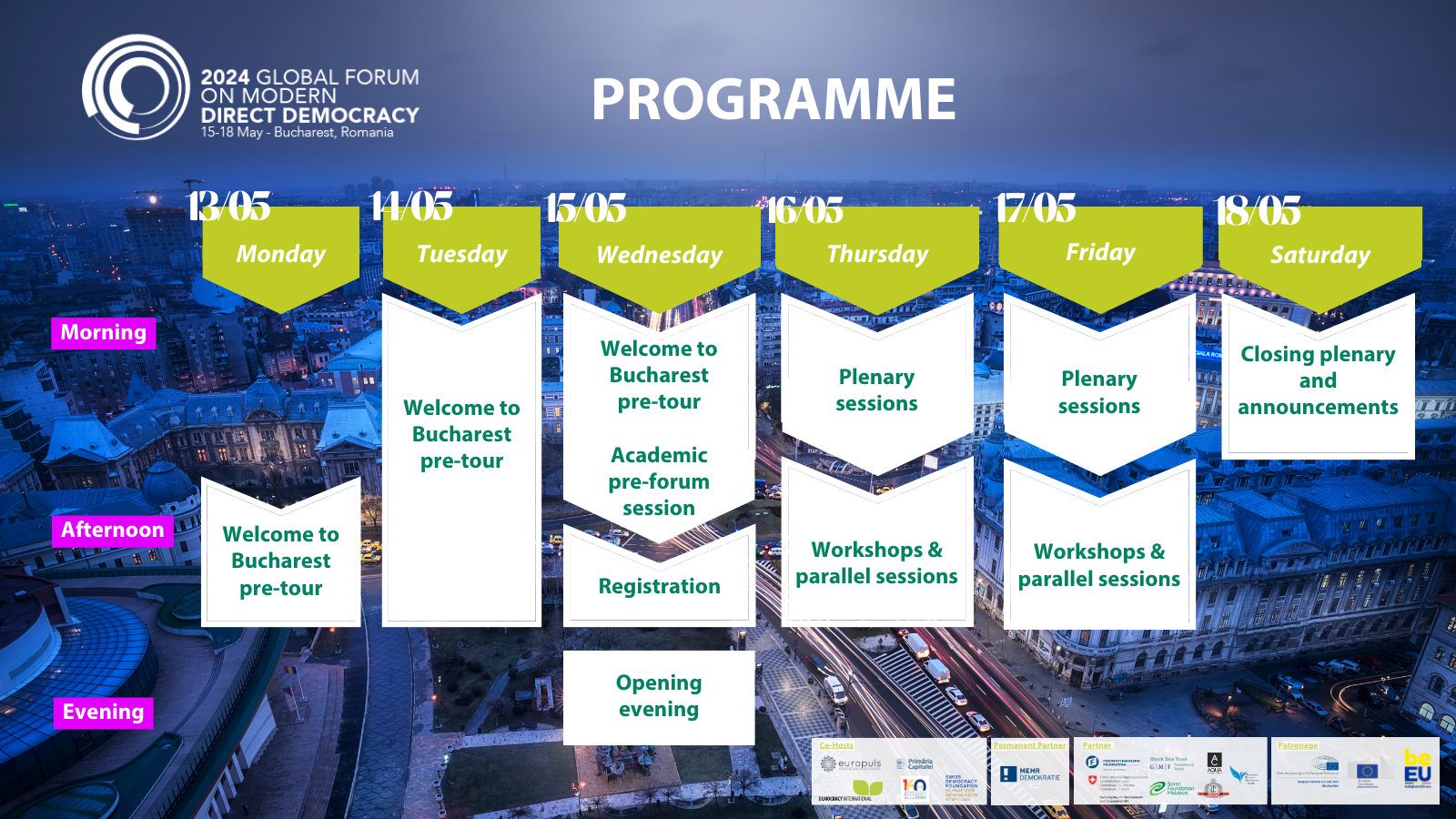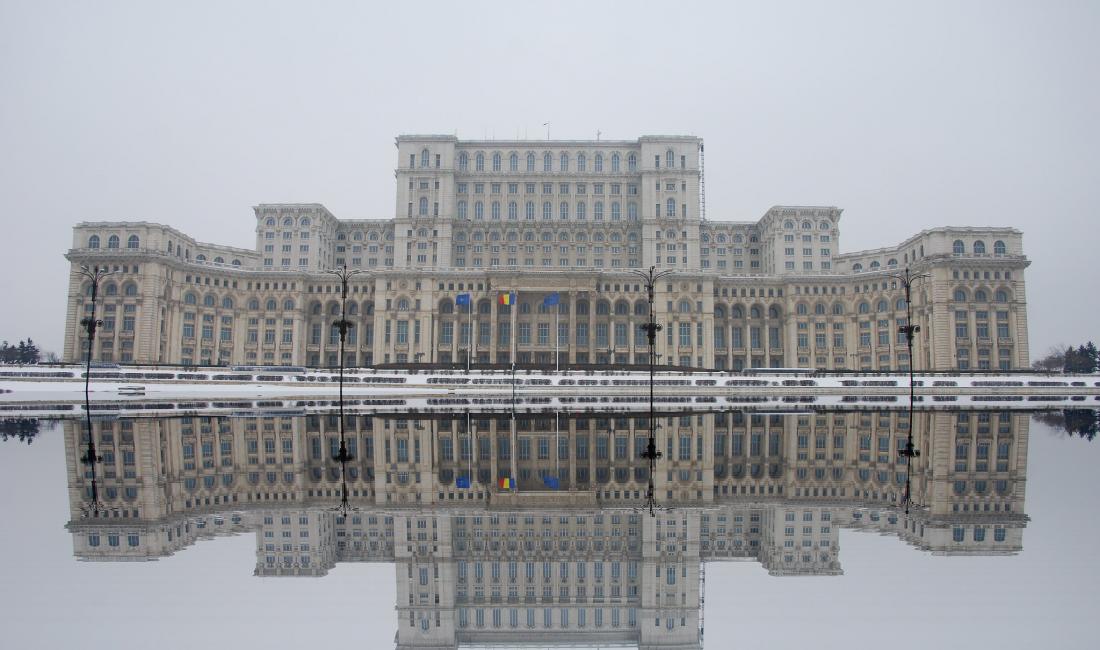Also: how to meet me; summer school, vampires, comparing French and Nepali towns
Photo Credit: George M. Groutas via Flickr CC BY 2.0 Deed
MEET DEMOCRACY LOCAL IN BARCELONA AND BUCHAREST
Next week takes me to Europe, where I look forward to meeting Democracy Local readers. On Monday, May 13, I’ll be attending the ALDA (European Alliance for Local Democracy) festival in Barcelona. May 15-17, I’ll be at the Global Forum on Modern Direct Democracy in Bucharest, and will be interviewing and photographing people about their experiences with local democracy. Please stop by, introduce yourself, and share your local democracy ideas!
At the Forum, you also can meet the Swiss Democracy Foundation’s Adrian Schmid, who authored a new Democracy Local piece from Tblisi, Georgia, about democracy protests in that city and his 20-day journey through the Caucasus. Also check out Julius Oblong, who writes for Democracy Local about the creation of VOTO, a digital tool for navigating long local ballots, like the one in Stuttgart.
DEMOCRACY TYPE OF THE WEEK: “SMART DEMOCRACY”
Zhao Tingyang, a professor in the Institute of Philosophy at the Chinese Academy of Social Sciences, has proposed the concept of “smart democracy” based on the thought of the 12th century BCE Chinese politician Jizi. Zhao’s idea is a fusion of public preference and scientific expertise. In his process, the public would vote for their preferred policies, then two committees of scholars (one of natural scientists, the other of humanities scholars) would vote to accept or reject the public’s preferences.
Writes Zhao: “The people have the independent power to decide the desirable, and the scientific committees have an independent power to decide the feasible.” Here is an interview with Zhao.
‘DEMOCRACY AND VAMPIRES HAVE A LOT IN COMMON’
Romania, site of the Global Forum, is is the home country of Dracula. Drawing on imagination and a lot of reading, I “interview” the vampire and get the 600-year-old Count’s perspective on democracy and humanity. This Democracy Column, co-published with Zocalo, shows that old Vlad is more optimistic about the future than many people!
ATTEND SUMMER SCHOOL FOR DEMOCRACY
Participedia, the indispensable site and hub for participation, is holding schools in “Transnational Democratic Innovations” from June 10-15 in South Africa, Brazil, and Canada. Details are here.
I WROTE THE MAGNA CARTA AND YOU CAN TOO!
It’s a new era, with cities and local communities at the heart of the democratic action. At Noema, the magazine of the Berggruen Institute, where I’m a fellow in the “Renovating Democracy” program this year, I recount the strange (and to me, at least, surprising) story of the new “Magna Carta” that the city of Rome commissioned me to write in 2018. This Magna Carta still has a life. This piece explains why.
WORTH READING
• “A Tree, A Roof, a Tent: Spatial Models for a New Democratic Paradigm,” This is a terrific chapter from DemocracyNext’s Claudia Chwalisz and her co-authors, from the new book Agnostic Assemblies, looking at shifts in the democratic paradigm, through public space.
• Can AI Promote Civil Discourse? A new MIT paper argues that AI has clear advantages for pro-democracy platforms.
WATCHING: THE WORLD’S MOST DEMOCRATIC CITY
In case you missed it, please check out our Democracy Local-Berggruen Institute event, in English and Spanish, comparing two of our world’s most democratic cities, Barcelona and Bogota.
THIS WEEK IN INDONESIA
Indonesia is a champion of democratic decentralization, but on-the-ground realities are complicated, especially in villages. This fascinating paper looks at attempts to hold government accountable to the public in one village on the island of Sumbawa—Rabakodo, population 3,346. That may sound faraway and small but you will relate. The hamlet has planning processes and no one attends. The public never gets the information about development that real participation requires. It’s a study of what happens when a village government says it wants the wisdom and input of its people—but doesn’t really mean it.
COMPARE AND CONTRAST
When we compare, we learn.
From a study of two French cities (Littletown and Middletown) governed by the right-wing, you can see how populism can work “particularly well in conjunction with localism,” writes this paper’s authors. The paper also explains why racist rhetoric becomes commonplace in one of the cities, and not the other.
On the other side of the spectrum, a comparative study of two communist-lead local governments in Nepal shows that the parties of how you ground social programs in community make a big difference in results and progress.
THE BARCELONA-CAPE TOWN CONNECTION
Local democracies can learn from each other. This fascinating item, published here by the Bertha Foundation, recounts how democratic movements for housing in Barcelona linked up with similar work in Cape Town, South Africa. One intriguing tidbit was how both Barcelona and Cape Town embraced the idea of an “advice assembly” to create a democratic process governing evictions. It’s another promising example of how people, working locally in faraway corners of the world, might work together to solve planetary problems.
DEMOCRACY QUOTE OF THE WEEK
“If you want to raise a crop for one year, plant corn. If you want to raise a crop for decades, plant trees. If you want to raise a crop for centuries, raise men. If you want to plant a crop for eternities, raise democracies.” — Carl A. Schenk, Germany-born forestry educator in North America (1868-1955)





